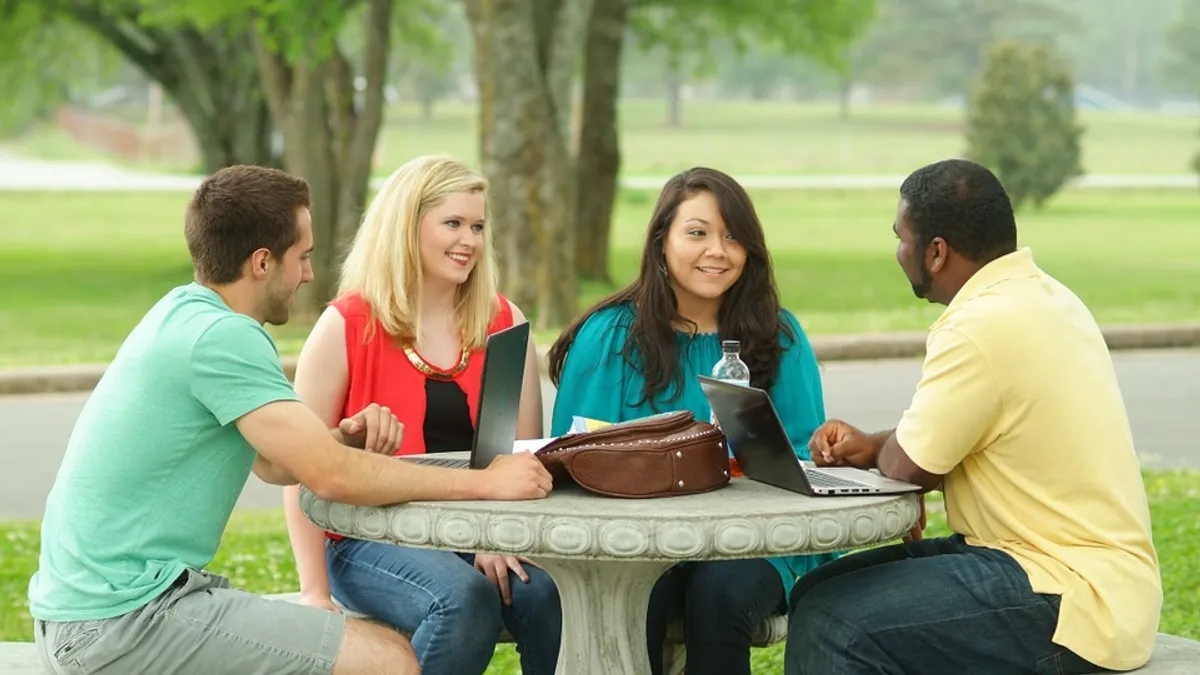Dive Brief:
- In the wake of a spate of protests by students of color which shook up the administration at the University of Missouri, the college saw a 35% drop in enrollment from 2015 to 2016, which some school leaders said may be due in part to the controversy, according to the Chronicle of Higher Education.
- With a wide array of options for high school seniors to consider when selecting a college, a controversy like the one the university faced could have been enough to drop it off of many lists, and high school juniors who were only starting to look at postsecondary options may never have even considered the school.
- Officials are also citing changes in the regional population and a decrease of high school graduates that is expected to last for a few more years as reasons for the decline.
Dive Insight:
College presidents and staff must try to find ways to mitigate the impact that such crises and controversies can have, as the increased politicization of college freshmen means political debates will likely only intensify. In a recent survey, many college presidents said that student/life experiences were near the bottom of their list of priorities, viewing their role as operational. This could be the reason Timothy Wolfe, who was the president of the Missouri system during the 2015 protests, and R. Bowen Loftin, the school’s chancellor, were pushed to resign. If college presidents are not seen as trusted and authentic voices for a students in the aftermath of a crisis, those students and staff may become all the more disinterested in defending presidents, and will instead see them as part of the problem.
College freshmen are entering schools more aware of political arguments and more inherently distrustful of what they perceive as unearned authority, so these instances are not likely to abate in the near future. Recent protests of Education Secretary Betsy DeVos and Vice President Mike Pence only make it clearer that college presidents and administration will not have the option of refusing to address the concerns of politically active students who are willing to take action to make their voices heard.









